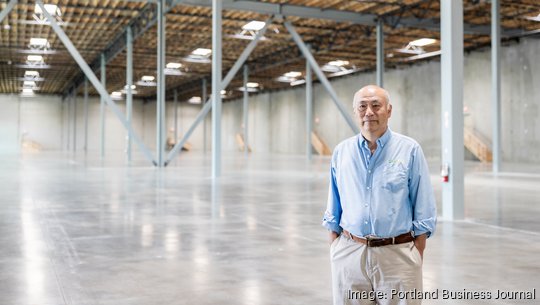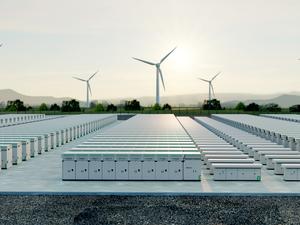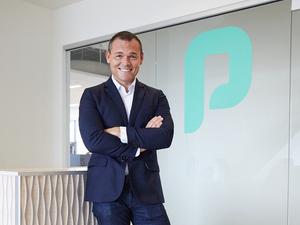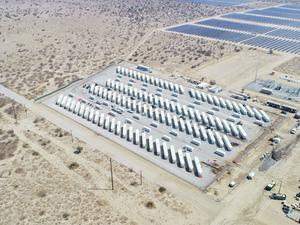
Joseph Lu is at again.
Lu, 70, founded Powin, grew it as a manufacturer of a wide range of consumer products in China, then turned the company toward battery energy storage systems, where it has become a world leader.
Now he’s launching a related business that he foresees employing up to 400 people in Tualatin by the end of 2024.
QPO Energy plans to build battery packs and modules for utility-scale energy storage integrators such as Powin, then target a retail market with energy storage units that homeowners can use to trim their electricity bills.
Incentives in the Inflation Reduction Act are driving the venture, pulling Lu out of another attempt at retirement. The law rewards rising levels of U.S. content in big storage projects and makes the residential units more affordable with handsome tax breaks.
“This is the opportunity for us,” Lu said in an interview at his Quailhurst Vineyard Estate in the Chehalem Hills south of Newberg, temporary home to QPO.
Tualatin building is ready
The startup now consists of Lu and a handful of others, but he’s constructed a 100,000-square-foot building 6 miles away in Tualatin that will become the QPO headquarters and factory. And two key partnerships to undergird QPO have fallen into place, he said.
One is with Yulon Group, a Taiwanese OEM best known for making Nissan vehicles in Taiwan but a battery supplier as well, including to Powin. Yulon will take a 49.5% stake in QPO and will buy the equipment that will go in the Tualatin factory. A ceremony to mark the joint venture is planned for July 14.
Meanwhile, Powin has provided a letter of intent to buy 1.5 gigawatts of modules from QPO, Lu said. That’s enough for several grid-scale energy storage projects.
Modules are made made by connecting clusters of batteries cells, the basic unit of an energy storage system. Modules can then be assembled into battery packs.
Heavyweights such as Samsung are investing in U.S. cell manufacturing.
‘I don’t have $100 million’
“We do the modules and packs because it is the easier process,” Lu said. “The most difficult is the cell. That’s too big and expensive for me. I’m too old. I don’t have $100 million.”
He put the cost of readying the Tualatin factory around $15 million, including $8 million for the equipment that Yulon will supply later this year.
Building packs and modules will come first, Lu said, a break-even business for QPO that will nonetheless provide a springboard into the residential units, which Lu foresees selling through retailers such as Home Depot
“After we finish development of our own product and we can start to sell it, then it’s all profit,” he said. That will mean pulling back as a module and pack supplier. Pondering that prospect, the chairman emeritus of Powin, who said he still has a 20% stake in the company, added with a smile, “Sorry, Powin.”






